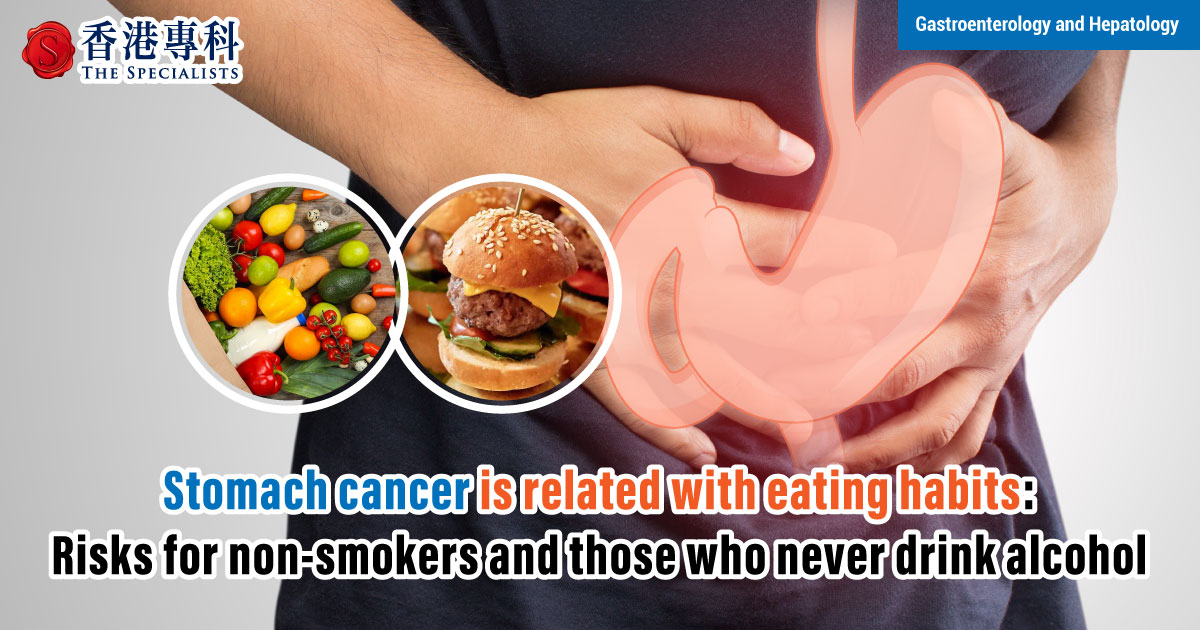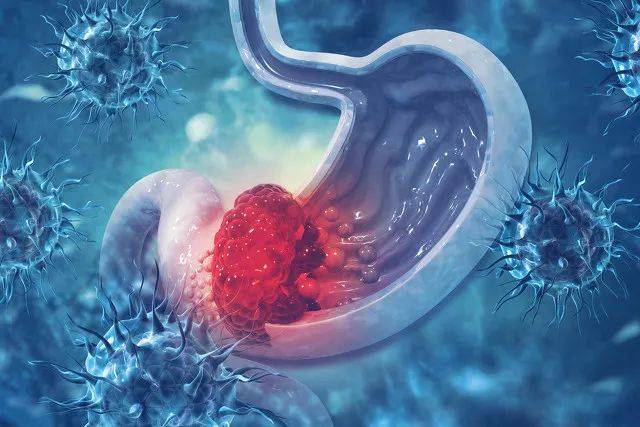Stomach cancer is related with eating habits: Risks for non-smokers and those who never drink alcohol

Stomach cancer as a common cancer in Hong Kong
Stomach cancer was the sixth commonest cancer in Hong Kong in 2017. It accounted for 4.0% of all new cancer cases. According to the statistics of Centre for Health Protection (CHP), there were 1314 new cases of stomach cancer in 2017, with 762 cases of males and 552 cases of females. The male to female ratio was about 1.4 to 1. It was, moreover, the sixth leading cause of cancer deaths in Hong Kong. In 2018, it claimed 687 deaths, accounting for 4.7% of all cancer deaths.

Early-stage stomach cancer can be missed
In the early stage, the cancer is contained within the inner lining of the stomach (mucosa) only. It may have no symptom and therefore often go undetected. Cancers starting in different sections of the stomach may cause different symptoms. Common symptoms of stomach cancer include indigestion, upper abdominal pain, nausea, vomiting with blood-stained vomitus, loss of appetite, weight loss, and fatigue.

Stomach cancer risks for non-smokers and those who never drink alcohol
Although exact causes of stomach cancer are still unknown, some factors lead to stomach cancer including eating habits, family history, the age and so on.

The relationship between eating habits and stomach cancer
The World Cancer Research Fund (WCRF) published the Stomach Cancer Report in 2016. Among the findings in the report, there is strong evidence that consuming approximately three or more alcoholic drinks per day increases the risk of stomach cancer. Moreover, consuming food preserved by salting can also increase the risk of stomach cancer. Research mainly relates to the high-salt foods and salt-preserved foods, including pickled vegetables, salted or dried fish.
What Makes Gastroscopy So Effective?
The gastroscopy provides a most direct way to look inside the stomach with any discomfort, biopsies may be removed or treated at the same time. The gastroscopy can help spot the very early stomach cancer as the lack of symptoms makes stomach cancer difficult to detect by patients themselves.
Treatment
Surgery with either subtotal gastrectomy (removal of part of the stomach) or total gastrectomy (removal of the entire stomach) is often the main treatment for the cancer. Depending on the condition, doctor may recommend chemotherapy (chemo) or chemoradiation (chemo plus radiation therapy) may be given before surgery to shrink the cancer and make it easier to remove.
*The above information is for reference only, please consult your doctor for detail.

 3405 8288
3405 8288
